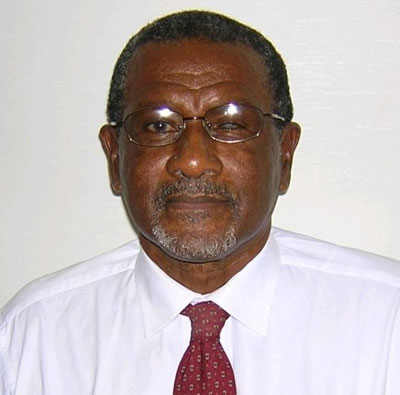By Vishani Ragobeer
Vishani@newsroom.gy
Caribbean leaders are once again seeking to meet their energy needs by using Venezuelan oil but renowned regional Science Advisor Dr. Neville Trotz has advised against this, particularly with countries in the region hoping to cut their fossil fuel use by 2050.
“Talking at this time about going back to PetroCaribe with Venezuela, I think, is not the way for the Caribbean to go.
“We have the internal resources between Trinidad, Guyana and Suriname to internalise the whole supply chain for the transition to zero carbon,” Dr. Trotz said during an oil and gas webinar hosted by the Guyana Business Journal and Magazine on Wednesday.
Dr. Trotz is the former Science Adviser to the Caribbean Community Climate Change Centre (CCCCC).

Prime Minister of St. Vincent and the Grenadines Ralph Gonsalves recently told reporters that the Caribbean Community (CARICOM) is seeking to resume the “favourable” PetroCaribe arrangement with Venezuela.
Previously, through the PetroCaribe arrangement, Caribbean countries were able to purchase oil from the Spanish-speaking country on generous payment terms.
About half of Guyana’s oil was obtained through this arrangement and the country supplied Venezuela with paddy and polished rice, as a means of settling some costs. This arrangement between Guyana and Venezuela deteriorated in 2015, after Guyana found oil and Venezuela’s claim to Guyana’s Essequibo intensified.
With significant finds offshore Guyana and Suriname, coupled with Trinidad and Tobago’s experience as an oil and gas player, Dr. Trotz however believes that the region’s energy needs can be satisfied with regional production.
And by using these regional resources, the advisor believes that Caribbean countries can achieve the goal of ‘net zero carbon by 2050’ more readily.
This goal, essentially, means that by 2050, countries will cease the use of fossil fuels and instead, use more environmentally-friendly renewable energy sources like solar, wind and hydropower.
This is particularly crucial to protect countries from the climate crisis which threatens lives and livelihoods globally. Caribbean countries have been worse affected by this crisis, facing rising sea levels, flooding and other catastrophes.
And by using resources produced within the region, Dr. Trotz reasoned that Caribbean countries should be able to fund climate mitigation and adaptation efforts, both of which are needed to protect countries amid the crisis.
He also opined that harnessing these resources could support other plans such as the region’s ambitious food security initiative. This food plan, for example, will require enormous amounts of fertilisers to help countries grow more food. And fertilisers can be produced from natural gas.
It is for these reasons Dr. Trotz underscored that oil and gas resources (fossil fuels) must be harnessed to support the transformation of countries’ energy sectors, including the shift to more renewable energy.
“The highest priority for the use of fossil fuels should be accorded to transforming the energy sector to achieve zero carbon status in the globally prescribed timeframe and to build climate resilience across all of our agriculture, water and health systems,” Dr. Trotz underscored.
Similarly, President and Chief Executive Officer (CEO) of the Energy Chamber of Trinidad and Tobago Dr. Dax Driver believes that regional production should be supported.
According to Dr. Driver, who also spoke during Wednesday’s webinar, there is a large enough market within the region for countries to pool both their oil and gas, and renewable energy sources.
Guyana has since recorded numerous profitable oil finds offshore in its Stabroek Block and its President, Dr. Irfaan Ali, had touted the creation of a new regional energy security plan, harnessing the newfound oil and natural gas resources in Guyana and Suriname.
It is not yet clear how the renewed PetroCaribe arrangement will affect this new regional energy security plan. Guyana, however, intends to use its oil and gas resources to support the creation of a new energy mix that will see the country gradually shifting away from the heavy dependence on harmful fossil fuels.






